In Hum TV’s new drama Jamaa Taqseem, the modern love story of Leila (played by Mawra Hocane) and Qais (Talha Chahour) is hitting too close to home. The drama written by Sarwat Nazir is much like her previous dramas holding a mirror up to the society. The big question here is: what happens when the idea of togetherness clashes with the woman’s need for space and identity?
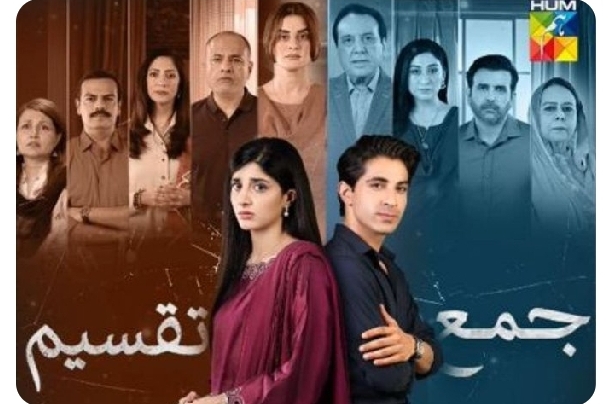
Leila faces challenges of joint family dynamics. She soon realizes that getting into such a setup is not all about harmony, but also about compromises, silences, and unspoken expectations. The major brunt for which have to be borne by the women of the family.
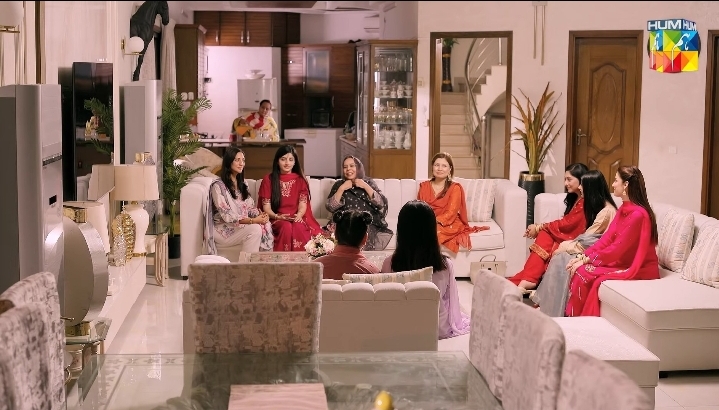
In episode 3, Leila and Qais get married and as a bride of a large household she also feels the love and care from everyone but cant seem to shirk away the judging eyes either. In the first few days she’s faced with so many questions. It feels like paving her way through the minefield.


She starts to feel her education means nothing if she doesn’t cook when its ‘her turn’ in the kitchen. Doesn’t want to sound like a menace if she voices her opinion.
‘Obedience’ is coming at a cost of losing ones own self and comfort. Her biggest challenge is not just to know what time the family eats together or who washes dishes, but to not lose herself in the process.
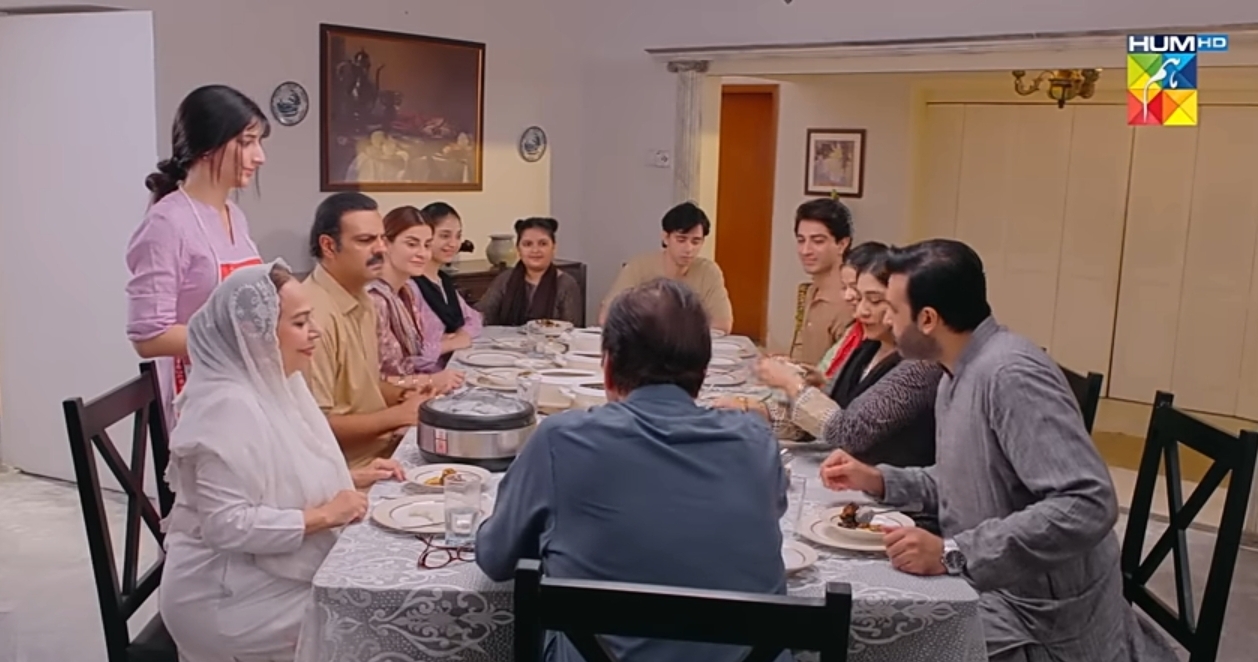
In episode 4 she has to face the criticism from female family members who are seeing her as a threat to the “unity” of the family and Qais gets a shutup from his sister who calls her ‘Zanmureed’ (wife’s slave).
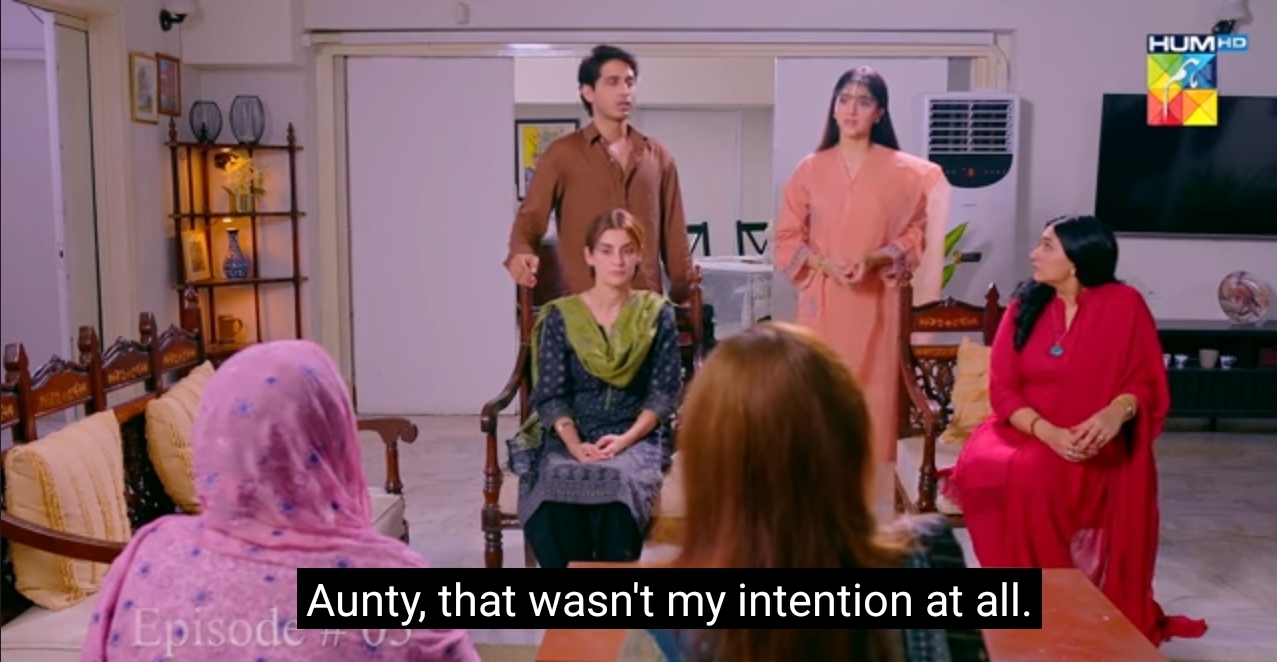
In episode 5, Leila also struggles with family politics, not knowing who is truly suppprting her and who is sabotaging her in her absence. Especially, the eldest bhabhi ‘Nighat’ who takes the Saas under her influence and makes them treat Leila strict. All the while trying to compete with her by dressing up and styling like her.
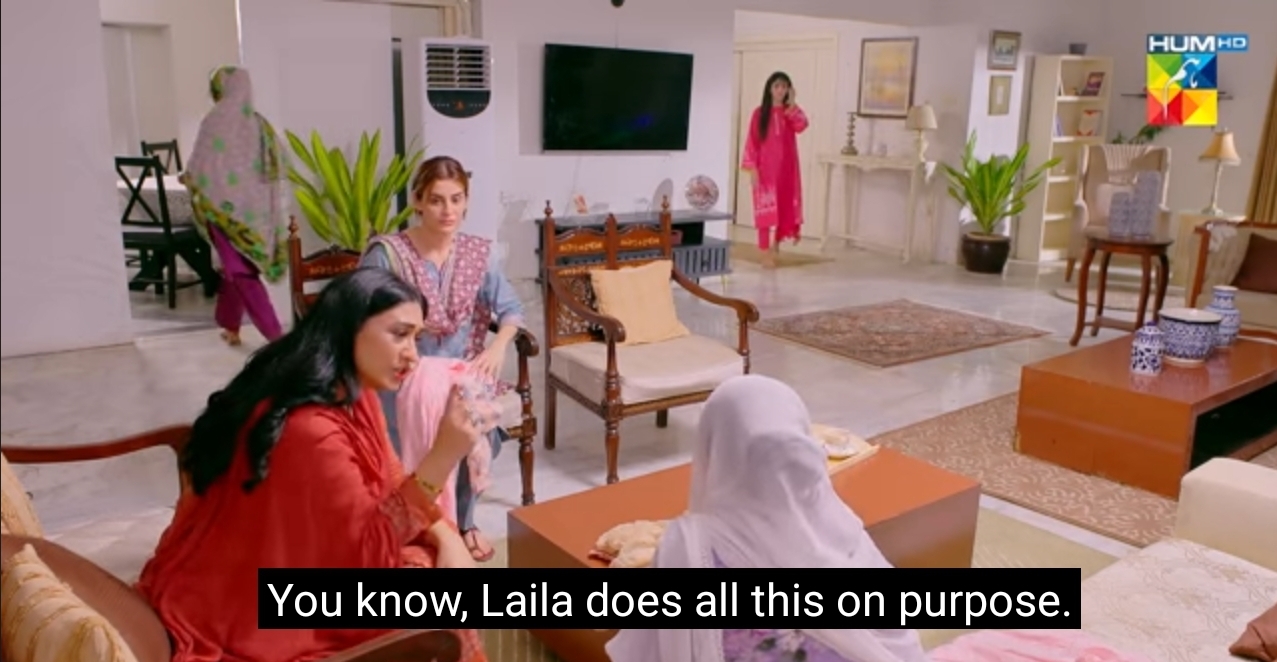
Even Qais, who loves Leila, is constrained. The one person who should be her ‘safe space’ is also bound by family loyalties and traditions. He can’t always help her out of a conundrum since that means waging a war against the family dynamics. Leila must adapt because Qais is not always coming to the rescue.
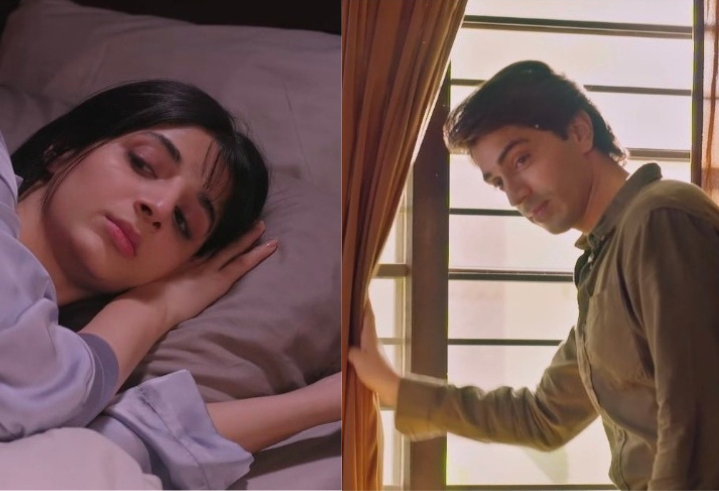
There’s also a difference between the elder two bahus in the way they’re treated in the family owing to their financial and educational status. Younger Rashida gets exploited at the hands of Nighat who comes from a well-to-do background. Rashida keeps doing all the chores silently all the while holding a grudge.
VIEWERS HAVE MADE SOME INTERESTING OBSERVATIONS ABOUT THE JOINT FAMILY DYNAMICS IN JAMA TAQSEEM:
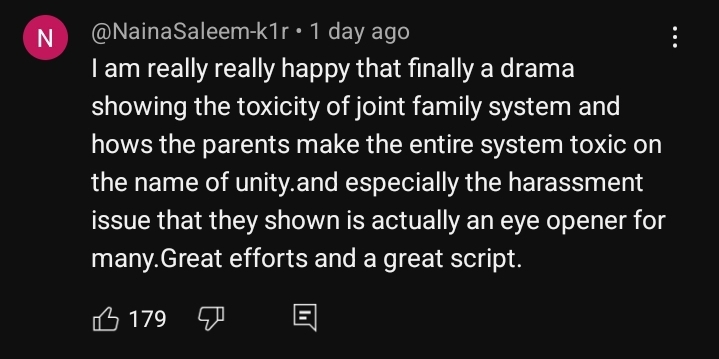

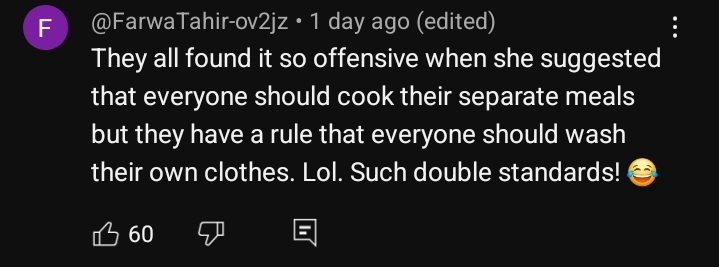
WOMEN ON SOCIAL MEDIA RELATE TO THE CONSEQUENCES OF TOXIC JOINT FAMILY SYSTEM
The real reason Jamaa Taqseem is so relatable for so many women is its depiction of a married woman carrying dreams and ambitions while juggling with joint family expectations. Its not always the big conflicts but its the little things that happen everyday that make all the difference. The emotional labor and psychological cost of “fitting in” is subtle but heavy.
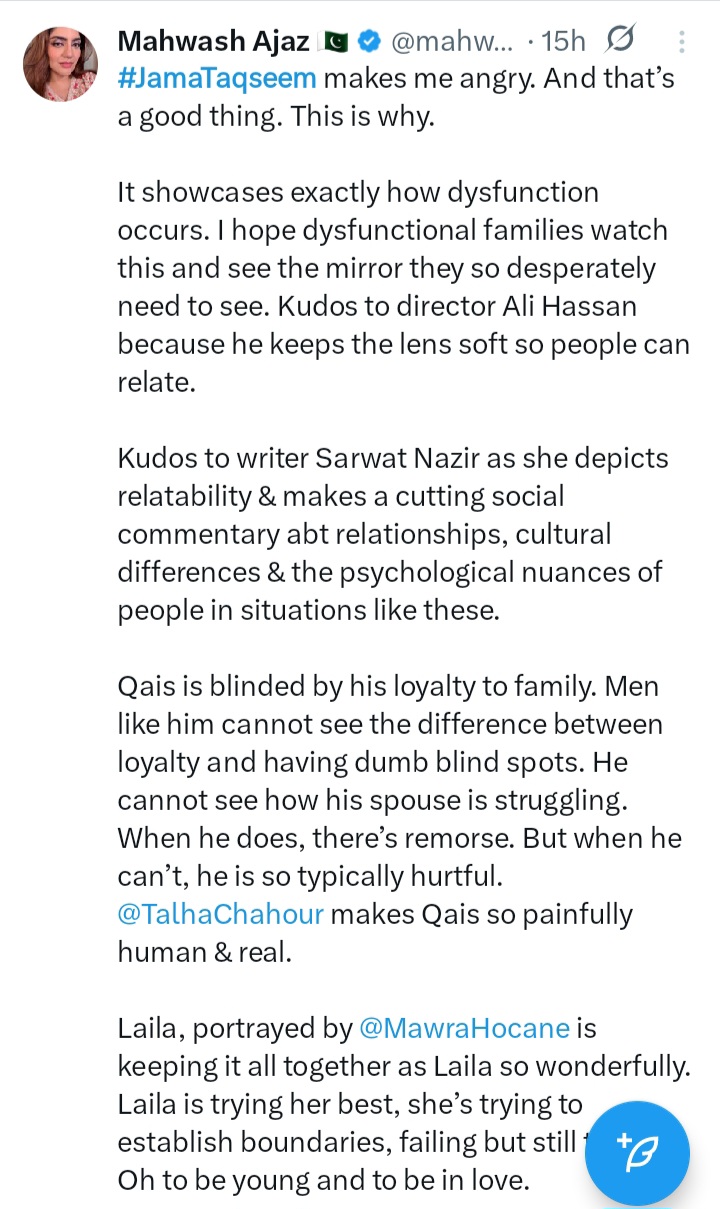
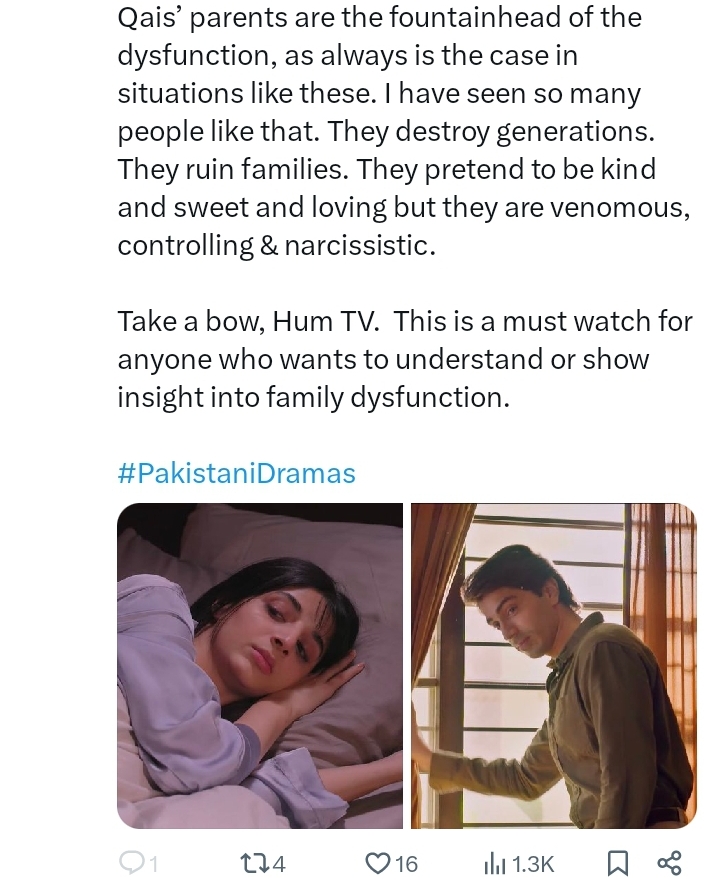
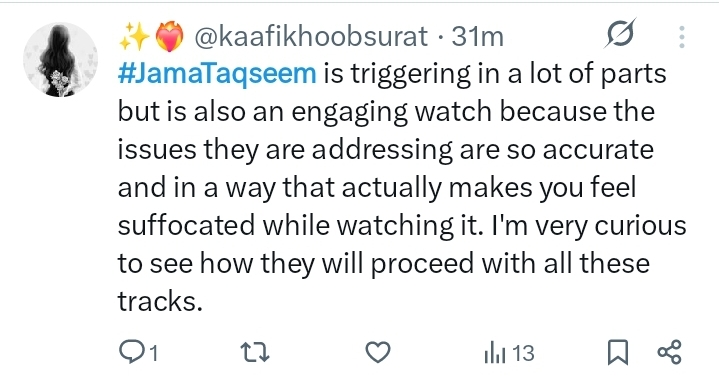
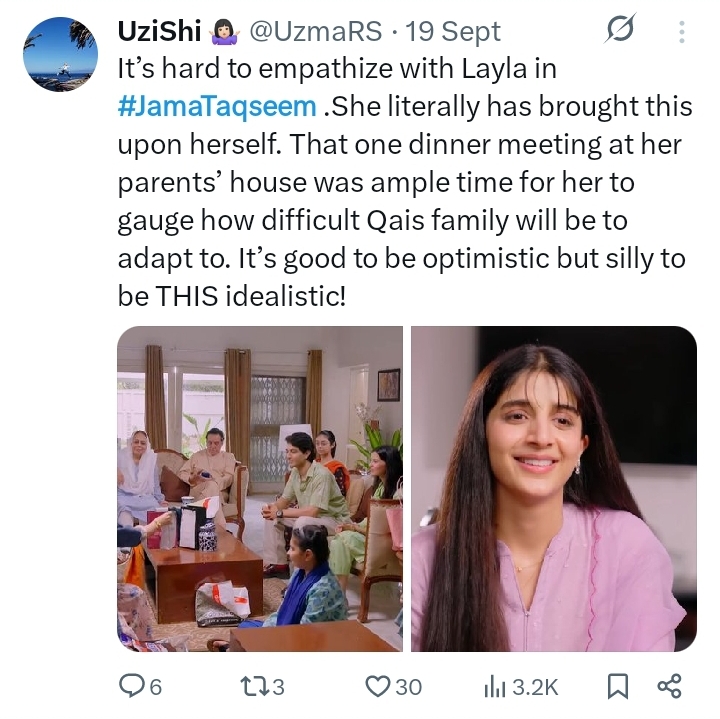
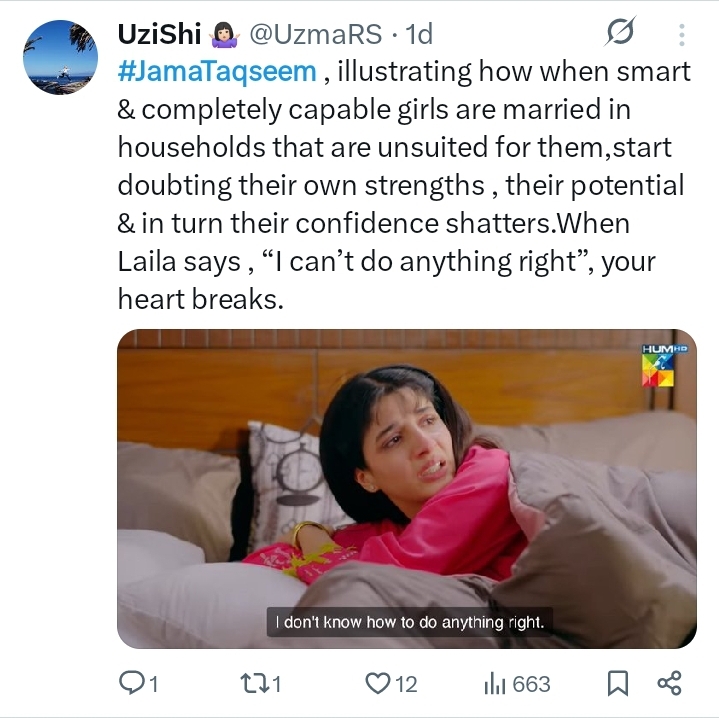
Here are some reactions from women on Youtube:
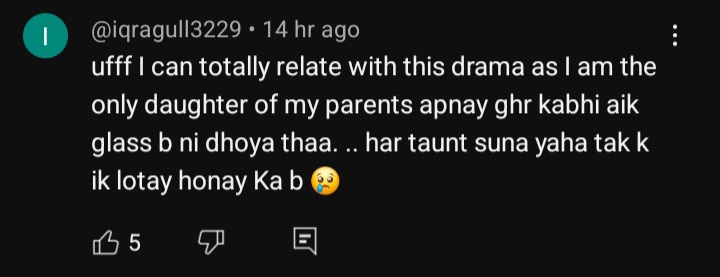
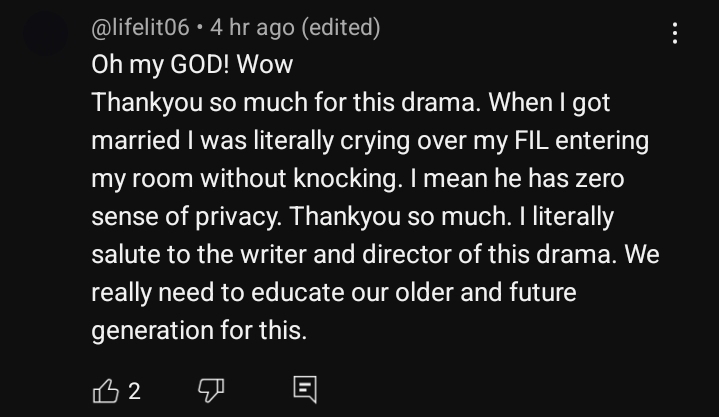
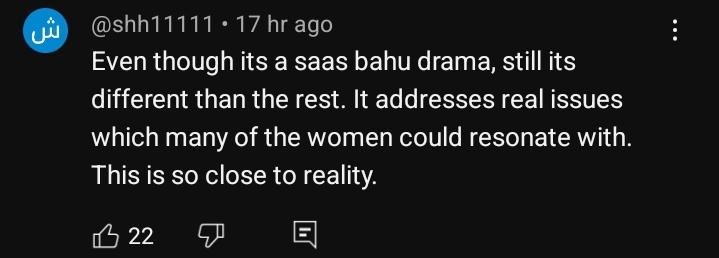
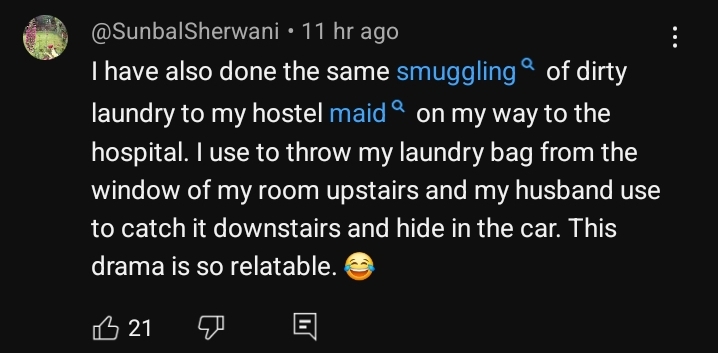
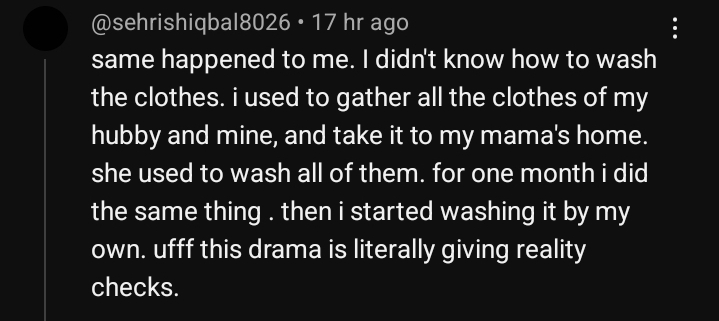
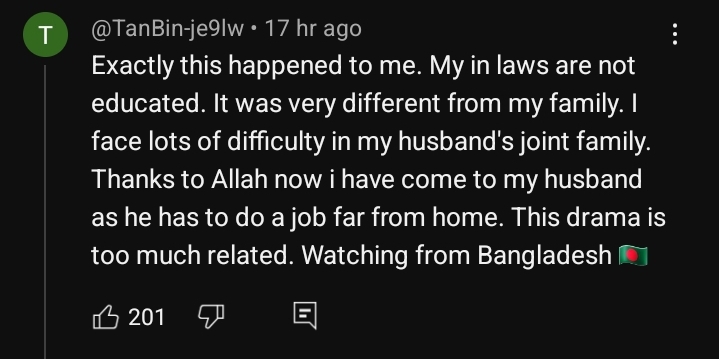
We’re hoping to see a realistic conclusion to the drama where Leila should not just submit but there should be a depiction of the cost that comes from silently suffering and going through all these challenges. Though, we have some interesting obesrvations from what to expect further.
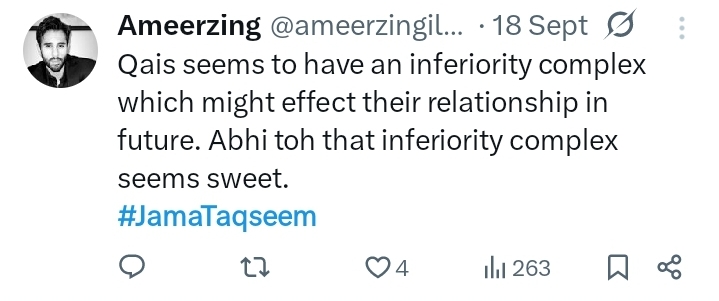
Tune in every night at 8 on Wednesdays and Thursdays to watch Jama Taqseem.








